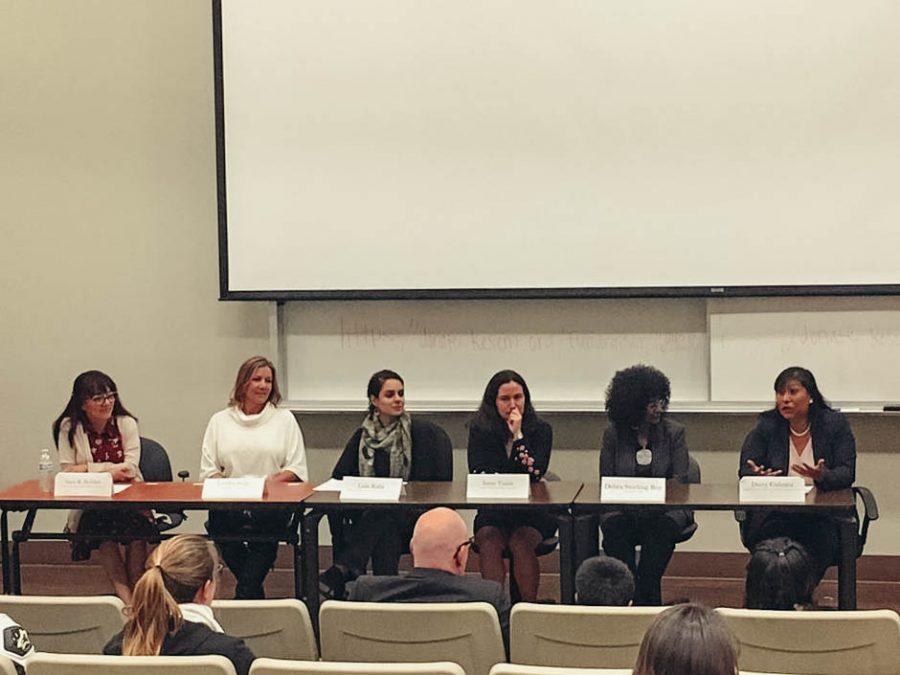On Nov. 30, a Women in Leadership panel took place on campus, which brought together six influential women to discuss their careers and personal experiences.
The meeting was focused on helping elevate women in their communities and in the workforce, and the women on the panel were there to help motivate and guide college students in their transition from college to the workforce.
The meeting was organized by environmental engineering senior Lorelay Mendoza, who worked with the Center for the Advancement of Students in Academia (CASA) to get in contact with the speakers. Mendoza was prompted to organize this when she met with Lida Raifa, the dean of Student Success and Equity at Grossmont College, who told her about the problems with women in leadership.
“She talked about her research on female presidents and the community college system and how we hold ourselves back from positions, or sometimes, we’ll wait for things like having to check every single box on the requirements for a job before we apply to it,” Mendoza said, “It made me realize that there was a lack of representation of women in leadership positions, and I wanted to bring that to SDSU and my peers.”
The six speakers all came from diverse backgrounds and occupations. Daisy Galeana, an SDSU alumna and Mexican immigrant is a technical manager for Solar Turbines Inc., who has found a lot of success in the corporate world and spoke a lot about the challenges of being a Hispanic woman going into STEM.
Rafia spoke about improving equity at SDSU and women elevating themselves in certain situations.
Sara R. Roldan, a director of intercultural communication, said she educates and trains law enforcement to improve how they deal with mental health, disabilities and minority status. She spoke about the struggles of being a woman in the workplace and how building connections is important.
Debra Sterling Roy has been an engineer for over 25 years and has come a long way in the workforce. She spoke about the challenges of being one of the only women in her field, and the limitations of women in STEM.
Irene Tassie, an SDSU alumna, is a support specialist at a biotech company and has run her own dog-walking business. She talked about how to deal with stress and coworkers in the workplace.
Tabitha Burke works in business management and has done a variety of jobs. She spoke about networking, finding jobs and building self-confidence at a company.
The women at the panel are also available as mentors for college students. Roldan came to the meeting due to the fact that she was also once an SDSU student with questions.
“When I was a student, I gained a lot of mentors that came through this panel, so I know how important they are for students, therefore I always make the time,” Roldan said.
The panel wasn’t just meant to help women — men sat in the audience, as well, to hear the speakers. One male military construction officer asked a question about helping integrate women in his program, and it sparked a conversation on what male employers could do differently in the workplace to make it more inclusive for women.
“We all want the same, we want equality, we want to see more women everywhere,” Roldan said, “So it’s not so much the difference, it’s that we want to unite ourselves because we’re so fragmented, so we can help each other, we need to help each other to elect each other.”







